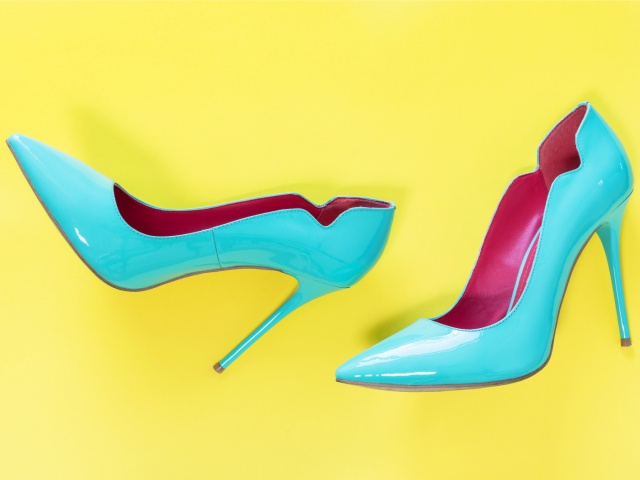Čárky (A2)
Commas (241)
I went to Mexico with my mom, dad, and sister.
| AmE: |
my mom, dad, and sister
|
| BrE: |
my mom, dad and sister
|


Čárky (commas) používáme nejčastěji v těchto případech:
- Výčet:
I have a cat, a dog, a hamster, and a bird.
- Přídavná jména:
It's fast, simple, and effective.
- Hlavní věty:
I like the dress, but it's too expensive.
- Přímá řeč:
"Hurry up," said Nick.
- Oslovení:
Vicky, hurry up!
Čárky používáme ve výčtech:
|
I was talking to Adam, Peter, and John.
|
|
You'll need some paper, a pencil, scissors.
|
Před posledním slovíčkem ve výčtu se často používá AND. V americké angličtině je před AND obvykle čárka, zatímco v britské není:
| AmE | BrE |
|---|---|
|
I bought eggs, milk, and flour.
|
I bought eggs, milk and flour.
|
Mary packed some clothes, glasses and a camera.
| BrE: |
some clothes, glasses and a camera
|
| AmE: |
some clothes, glasses, and a camera
|


Did you see Anna, Steve, and Patrick?
| AmE: |
Anna, Steve, and Patrick
|
| BrE: |
Anna, Steve and Patrick
|


We ordered a large beef burger, fries, coke.
|
a burger, fries, coke
|
|
a burger, fries, and coke
|
|
a burger, fries and coke
|


Čárky používáme mezi přídavnými jmény, pokud jsou za slovíčkem, které rozvíjí:
|
The room was small, dark, and full of people.
|
|
Jim is big, strong, and kind.
|
Podobně jako u výčtů podstatných jmen, v americké angličtině je před AND čárka, v britské angličtině nikoliv.
The road was hard, long and steep.
| BrE: |
hard, long and steep
|
| AmE: |
hard, long, and steep
|


Do you have a wine that is tasty, sweet, and cheap?
| AmE: |
tasty, sweet, and cheap
|
| BrE: |
tasty, sweet and cheap
|


Čárky používáme obvykle mezi hlavními větami, bez ohledu na to, jaká je mezi nimi spojka:
|
I'm in big trouble, and I don't know what to do.
|
|
You can stand there, or you can help me fix the car.
|
|
John is a good runner, but he's really bad at swimming.
|
Čárky často nepíšeme mezi krátkými hlavními větami:
|
I talked and she listened.
|
|
I like the car but she doesn't.
|
Čárky nepíšeme mezi větami, ve kterých je vynechaný podmět:
|
He said goodbye and went home.
|
|
He heard me but didn't reply.
|
It's been raining for hours, and it doesn't look like it's going to stop anytime soon.
| Dvě hlavní věty: |
| It's been raining for hours, and it... |


We can eat out or we can eat in.
| Dvě krátké věty: |
|
We can eat out or we can eat in.
|


Did you go to the market and buy apples?
| Vynechaný podmět (you) ve druhé větě: |
|
Did you go there and buy apples?
|
| Did you go there, and bought...? |


Čárky používáme často před nebo za přímou řečí. Porovnejte:
|
Hannah said, "You're wrong."
|
"You're wrong," said Hannah.
|
|
Tom said, "I love you."
|
"I love you," said Tom.
|
"That was a nice shot," said Martin.
|
"That was a nice shot," said Martin.
|
|
Martin said, "That was a nice shot."
|


Eric said, "I don't think I can fix this."
|
Eric said, "I can't fix this."
|
|
"I can't fix this," said Eric.
|


"Those shoes are too expensive," said Ellen.
|
"They are expensive," said Ellen.
|
|
Ellen said, "Those shoes are expensive."
|


Čárky používáme po oslovení, stejně jako v češtině:
|
Dear Mrs Slope, it was nice to hear from you.
|
|
Henry, where are you going?
|
My friends, I'm so glad you came!
| Po oslovení: |
| My friends, I'm so glad... |


We need to hurry up, Vicky! The train leaves at 5 pm.
| Před oslovením: |
|
Hurry up, Vicky!
|


Čárky (commas) – nejdůležitější body:
| Výčet: |
I have a cat, a dog, and a bird.
|
|
I have a cat, a dog and a bird.
|
|
| Přídavná jména: |
It's fast, simple, and effective.
|
|
It's fast, simple and effective.
|
|
| Hlavní věty: |
I like the dress, but it's too expensive.
|
| Přímá řeč: |
"Hurry up," said Nick.
|
| Oslovení: |
Vicky, hurry up!
|
